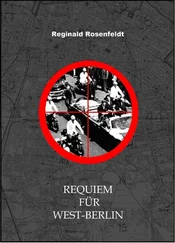Isaiah Berlin - Russian Thinkers
Здесь есть возможность читать онлайн «Isaiah Berlin - Russian Thinkers» весь текст электронной книги совершенно бесплатно (целиком полную версию без сокращений). В некоторых случаях можно слушать аудио, скачать через торрент в формате fb2 и присутствует краткое содержание. Год выпуска: 0101, Жанр: Старинная литература, на русском языке. Описание произведения, (предисловие) а так же отзывы посетителей доступны на портале библиотеки ЛибКат.
- Название:Russian Thinkers
- Автор:
- Жанр:
- Год:0101
- ISBN:нет данных
- Рейтинг книги:3 / 5. Голосов: 1
-
Избранное:Добавить в избранное
- Отзывы:
-
Ваша оценка:
- 60
- 1
- 2
- 3
- 4
- 5
Russian Thinkers: краткое содержание, описание и аннотация
Предлагаем к чтению аннотацию, описание, краткое содержание или предисловие (зависит от того, что написал сам автор книги «Russian Thinkers»). Если вы не нашли необходимую информацию о книге — напишите в комментариях, мы постараемся отыскать её.
Russian Thinkers — читать онлайн бесплатно полную книгу (весь текст) целиком
Ниже представлен текст книги, разбитый по страницам. Система сохранения места последней прочитанной страницы, позволяет с удобством читать онлайн бесплатно книгу «Russian Thinkers», без необходимости каждый раз заново искать на чём Вы остановились. Поставьте закладку, и сможете в любой момент перейти на страницу, на которой закончили чтение.
Интервал:
Закладка:
comparable to offer, to mock at it or keep it from their gates. He accused
Herz.en of being a tired and disillusioned man, who after 1 849 was
looking for a new divinity and had found it in the simple Russi.m
peasant. 2 'You erect an altar to this new and unknown God because
almost nothing is known about him, and one can . . . pray and believe
1 A. I. Herzen, 'Kontsy i nachala', First Letter, I 862. Solmmit sochifltflii
'l1 tridtsati tolflallh (Moscow, 19 54-65), vol. 1 6, p. 1 3 8. Later references to
Herzen's works ai:e to this edition.
1 Letter to Herzen, 8 November 1 86z.

FATH ERS AND C H I LDREN
and wait. This God does not begin to do what you expect of him;
this, you say, is temporary, accidental, injected by outside forces; your
God loves and adores that which you hate, hates that which you love;
(he J accepts precisely what you reject on his behalf: you avert your
eyes, you stop your ears . . .'1 'Either you must serve the revolution,
and European ideals as before. Or, if you now think that there is
nothing in all this, you must have the courage to look the devil in
both eyes, plead guilty to the whole of Europe-to its face-and not make
an open or implied exception for some coming Russian Messiah' - least
of all for the Russian peasant who is, in embryo, the worst conservative
of all, and cares nothing for liberal ideas.1 Turgenev's sober realism
never deserted him. He resporided to the faintest tremors of Russian
life; in particular, to the changes of expression on what he called 'the
swiftly altering physiognomy of those who belong to the cultured
section of Russian society'.8 He claimed to do no more than to record
what Shakespeare called the 'form and pressure' of the time. He faithfully described them all-the talkers, the idealists, the fighters, the cowards, the reactionaries, and the radicals-sometimes, as in Smoke,
with biting polemical irony, but, as a rule, so scrupulously, with so
much understanding for all the overlapping sides of every question,
so much unruffled patience, touched only occasionally with undisguised
irony or satire (without sparing his own character and views), that he
angered almost everyone at some time.
Those who still think of him as an uncommitted artist, raised high
above the ideological battle, may be surprised to learn that no one in
the entire history of Russian literature, perhaps of literature in general,
has been so ferociously and continuously attacked, both from the
right and from the left, as Turgenev. Dostoevsky and Tolstoy held
far more violent views, but they were formidable figures, angry
prophets treated with nervous respect even by their bitterest opponents.
Turgenev was not in the least formidable; he was amiable, sceptical,
'kind and soft as wax',� too courteous and too self-distrustful to frighten
anyone. He embodied no clear principles, advocated no doctrine, no
1 ibid. On this topic see Pis'ma K. D. KilfJe/i1111 i I. S. TMrge11�11 l A. /.
Gn-tst11M, ed. M. Dragomanov (Geneva. 1 89: ),)etten byTurgenev for r 86z-J.
• Letter to Herzen, 8 November r 86:.
1 Introduction to the collected novels, r88o, Pol11ot so6ra11ie socAitu11ii i
pise111 (Moscow/Leningrad, 196o-68), 8ocAi11e11iya, vol. r :, p. 303. later
references to Turgenev'a works are to this edition, unless otherwise indicated.
' See above, p. :67, note 1.

R U SSIAN T H IN K E R S
panacea for the 'accursed questions', as they arne to be called, personal
and social. 'He felt and understood the opposite sides of life,' said
Henry James of him, 'our Anglo-Saxon, Protestant, moralistic conventional standards were far away from him . . . half the charm of conversation with him was that one breathed an air in which cant
phrases . . • simply sounded ridiculous.'1 In a country in which readers,
and especially the young, to this day look to writers for moral direction,
he refused to preach. He was aware of the price he would have to pay
for such reticence. He knew that the Russian reader wanted to . be
told what to believe and how to live, expected to be provided with
clearly contrasted values, clearly distinguishable heroes and villains.
When the author did not provide this, Turgenev wrote, the reader
was dissatisfied and blamed the writer, since he found it difficult and
irritating to have to make up his own mind, find his own way. And,
indeed, it is true that Tolstoy never leaves you in doubt about whom
he favours and whom he condemns; Dostoevsky does not conceal
what he regards as the path of salvation. Among these great, tormented
LaocoOns Turgenev remained cautious and sceptical; the reader is left
in suspense, in a state of doubt: central problems are raised, and for the
most part left-it seemed to some a trifle complacently-unanswered.
No society demanded more of its authors than Russia, then or now.
T urgenev was accused of vacillation, temporising, infirmity of purpose,
of speaking with too many voices. Indeed, this very topic obsessed
him. Rudin, Asya, On the Eve, the major works of the 1 Ssos, are
preoccupied with weakness-the failure of men of generous heart,
sincerely held ideals, who remain impotent and give in without a
struggle to the forces of stagnation. Rudin, drawn partly from the
young Bakunin, partly from himself,1 is a man of high ideals, talks
well, fascinates his listeners, expresses views which Turgenev could
accept and defend. But he is made of paper. When he is faced with a
genuine crisis which calls for courage and resolution, he crumples and
collapses. His friend, Lezhnev, defends Rudin's memory: his ideals
were noble but he had 'no blood, no character'. In the epilogue (which
the author added as an afterthought to a later edition), after aimless
l Partial Portraill (London, ! 888), pp. z96-7. For James's view of
Turgenev see also Tltt .1rt of Fiction (Oxford, 1948).
1 His critical friend Herz:en said that Turgenev created Rudin 'in biblical
fashion-after his own image and likeness'. 'Rudin', he added, 'is Turgenev
the Second, plus (t�oslr11luwslziisya) a lot of . . . Bakunin's philosophical
jargon.' So6ra11it roclzifll!flii, vol. I I, p. 3 59·

FATHERS AND C H I LDREN
wanderings, Rudin dies bravely but uselessly on the barricades of
Paris in 1 848, something of which his prototype Bakunin was, in
Turgenev's view, scarcely capable. But even this was not open to him
in his native land; even if Rudin had blood and character, what could
he have done in the Russian society of his time? This 'superfluous'
man, the ancestor of all the sympathetic, futile, ineffective talkers in
Russian literature, should he, couid he, in the circumstances of his
time have declared war upon the odious aristocratic lady and her world
to which he capitulates? The reader is left without guidance. The
heroine of On the Eve, Elena, who looks for a heroic personality to
help her escape from the false existence of her parents and their milieu,
finds that even the best and most gifted Russians in her circle lack willpower, cannot act. She follows the fearless Bulgarian conspirator Insarov, who is thinner, drier, less civilised, more wooden than the
Читать дальшеИнтервал:
Закладка:
Похожие книги на «Russian Thinkers»
Представляем Вашему вниманию похожие книги на «Russian Thinkers» списком для выбора. Мы отобрали схожую по названию и смыслу литературу в надежде предоставить читателям больше вариантов отыскать новые, интересные, ещё непрочитанные произведения.
Обсуждение, отзывы о книге «Russian Thinkers» и просто собственные мнения читателей. Оставьте ваши комментарии, напишите, что Вы думаете о произведении, его смысле или главных героях. Укажите что конкретно понравилось, а что нет, и почему Вы так считаете.










